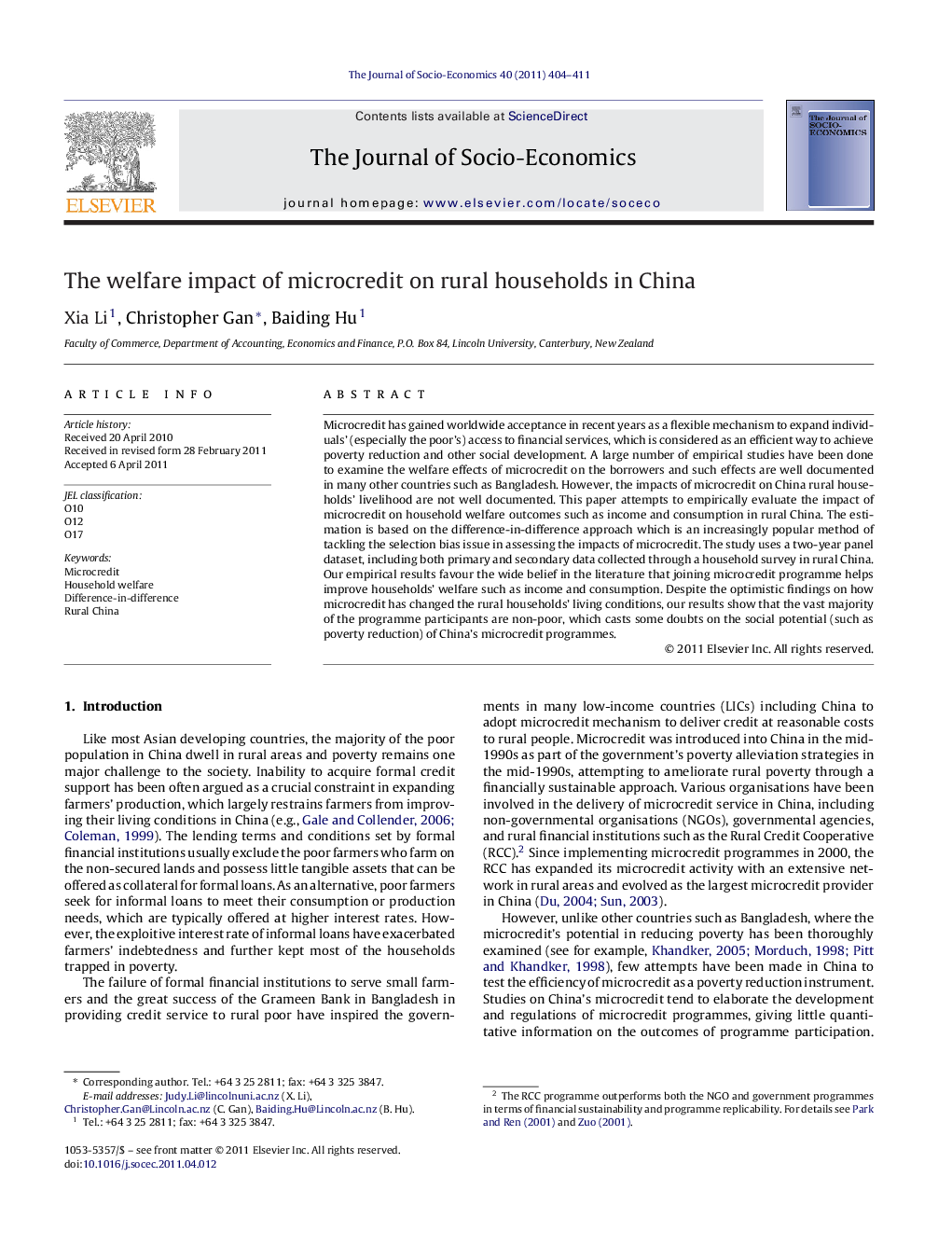| کد مقاله | کد نشریه | سال انتشار | مقاله انگلیسی | نسخه تمام متن |
|---|---|---|---|---|
| 970805 | 1479545 | 2011 | 8 صفحه PDF | دانلود رایگان |

Microcredit has gained worldwide acceptance in recent years as a flexible mechanism to expand individuals’ (especially the poor's) access to financial services, which is considered as an efficient way to achieve poverty reduction and other social development. A large number of empirical studies have been done to examine the welfare effects of microcredit on the borrowers and such effects are well documented in many other countries such as Bangladesh. However, the impacts of microcredit on China rural households’ livelihood are not well documented. This paper attempts to empirically evaluate the impact of microcredit on household welfare outcomes such as income and consumption in rural China. The estimation is based on the difference-in-difference approach which is an increasingly popular method of tackling the selection bias issue in assessing the impacts of microcredit. The study uses a two-year panel dataset, including both primary and secondary data collected through a household survey in rural China. Our empirical results favour the wide belief in the literature that joining microcredit programme helps improve households’ welfare such as income and consumption. Despite the optimistic findings on how microcredit has changed the rural households’ living conditions, our results show that the vast majority of the programme participants are non-poor, which casts some doubts on the social potential (such as poverty reduction) of China's microcredit programmes.
► We empirically evaluate the impact of microcredit on household welfare outcomes such as income and consumption in rural China.
► We use a two-year panel dataset, including both primary and secondary data collected through a household survey in rural China.
► Our empirical results favour the wide belief in the literature that joining microcredit programme helps improve households’ welfare.
► However the vast majority of the programme participants are non-poor, which casts some doubts on the social potential (such as poverty reduction) of China's microcredit programmes.
Journal: The Journal of Socio-Economics - Volume 40, Issue 4, August 2011, Pages 404–411